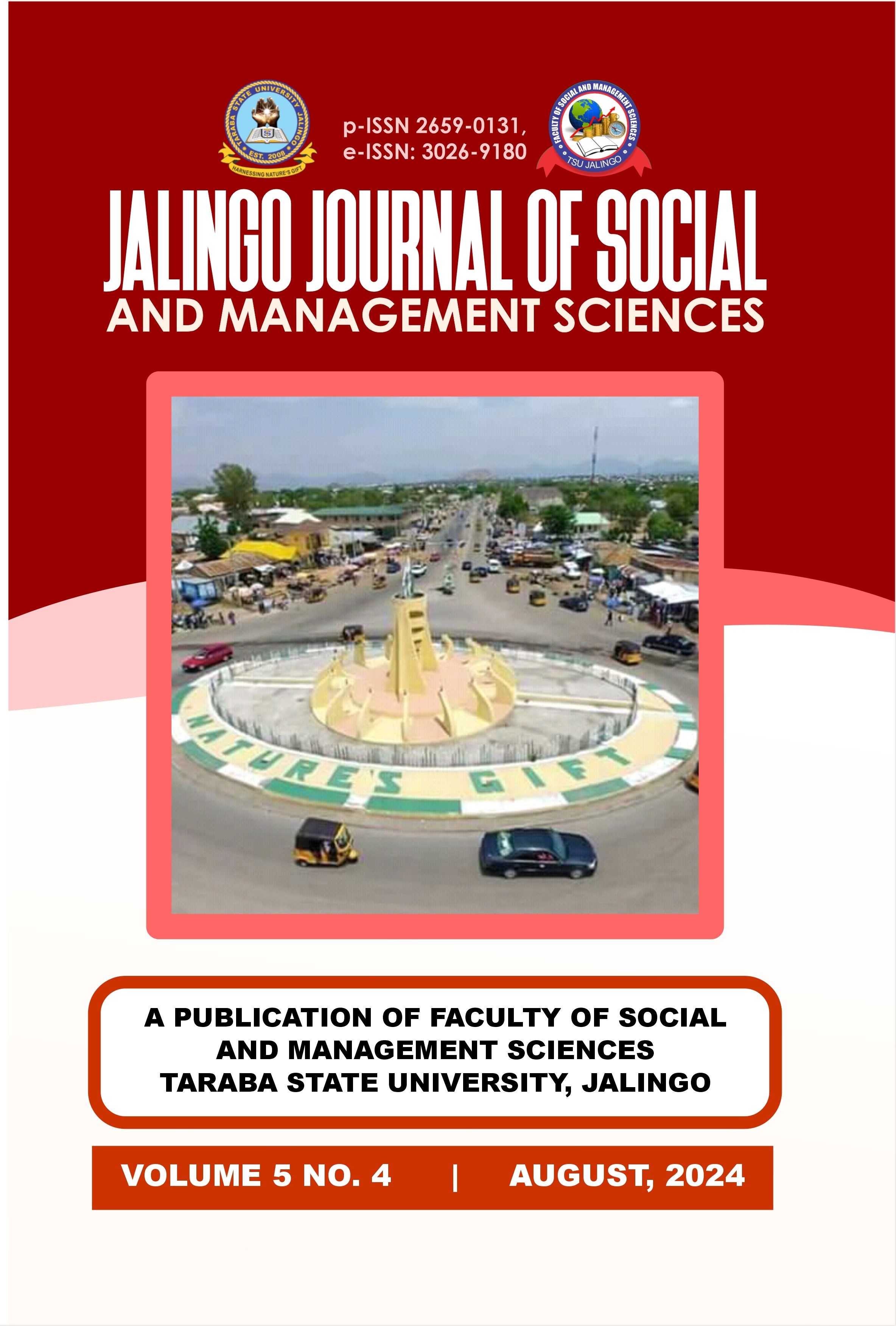Assessment of Rural Livelihood Strategies in Taraba State, Nigeria
Keywords:
Households, livelihood diversifications, livelihood strategies, rural livelihood and sustainable livelihoodAbstract
This study examines how different livelihood strategies used by rural households in Taraba State, Nigeria affects household resilience and wellbeing. Taraba State offers a distinctive context for examining rural lifestyles because of its varied natural zones and agricultural economy. A desk review is utilized in the study to evaluate the state's livelihood patterns. The findings of the study reveal a strong dependence on agriculture, with crop farming and livestock rearing being the predominant livelihood activities. This notwithstanding, households do also participate in a variety of non-farm pursuits, including seasonal migration to urban areas in search of employment opportunities and petty commerce. The study identifies several constraints affecting rural livelihoods, such as restricted loan availability, poor infrastructure, and the effects of climate variability. The findings also show that in order to reduce risks and improve resilience, households apply adaptive measures such as crop diversification, agroforestry, and community-based resource management. The study concludes with policy recommendations targeted at improving rural livelihoods in Taraba State. These recommendations include investing in rural infrastructure, encouraging sustainable farming methods, and facilitating better access to agricultural inputs and financing facilities.

Downloads
Published
Issue
Section
License
Copyright (c) 2024 JALINGO JOURNAL OF SOCIAL AND MANAGEMENT SCIENCES

This work is licensed under a Creative Commons Attribution-NonCommercial 4.0 International License.
